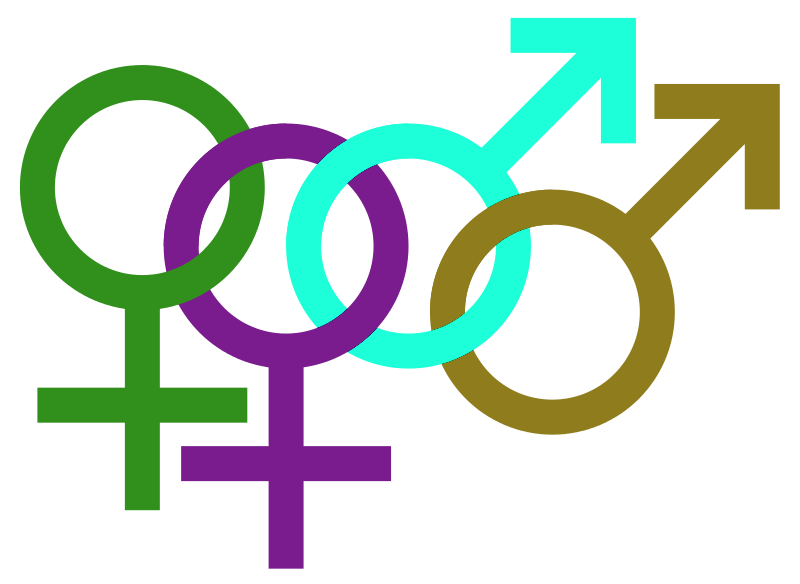Can An Algorithm Predict Sexual Orientation?

Can our sexual preferences by mapped back to our DNA? Some scientists say yes, but others are very skeptical. (Image: Wikimedia Commons)
Researchers from across the country have developed an algorithm that they say can fairly accurately predict sexual orientation in men based on their DNA.
The findings were recently presented at the American Society of Human Genetics’ annual meeting.
For their research, scientists studied the DNA of 37 pairs of twins, in which one twin was homosexual and the other was heterosexual, as well as 10 pairs in which both twins were homosexual.
Researchers analyzed patterns of DNA methylation, a DNA modification that determines when and how strongly a gene is expressed. (Identical twins have the same DNA, but can have different DNA modifications due to environmental factors.)
They ended up with more than 400,000 data points, and devised an algorithm that found these DNA modifications in nine small regions of the men’s genomes. By using the algorithm, researchers were able to predict the sexual orientation of men with nearly 70 percent accuracy.
While the findings are surprising — and somewhat controversial — not everyone is convinced that they’re accurate.
Peng Jin, PhD, a professor of human genetics at the Emory University School of Medicine, tells Yahoo Health that it’s not unusual to find some sort of association with any hypothesis when studying such a small sample size of identical twins. “The power of their analyses is low,” he says.
Jin cautions that this doesn’t prove that our sexuality and sexual orientation is only influenced by our DNA. “Sexuality is definitely much more complex than the information embedded in our DNA,” he says. “Epigenetics [the study of changes in gene expression] could potentially contribute to that, but the data presented here could only demonstrate the potential association at the best.”
Related: Why Men and Women Aren’t So Different After All
Board-certified clinical sexologist Debra Laino echoes the sentiment. “The findings are really cool and educational, but they’re not the end-all, be-all when it comes to human sexuality, and its diversity and fluidity,” she tells Yahoo Health.
She likens our DNA’s role in our sexual orientation to a genetic predisposition to developing heart disease. It’s possible to be at a higher risk for heart disease and never develop it due to proper diet and exercise and other factors. The same can be true for our sexuality.
“There are factors in our environment that turn on our DNA, and there are things that may never turn it on,” she says.
While Laino says some people may be more influenced by their DNA than others (she specifically cites those who identify as “100 percent” heterosexual or homosexual), she points out that there is often a lot of variation with sexuality.
Our experiences, context, personalities, and even societal trends can influence how we behave sexually, she says.
Lead study researcher Tuck Ngun, PhD, told Buzzfeed that he’s worried about the implications of his work (namely, that it may lead to a commercial test for sexuality) and has left the field of academic research as a result.
“It kind of, honestly, became a little bit troubling to me, what I was actually doing,” he told Buzzfeed. “Having done this now, I could sort of foresee a not-so-happy outcome.”
Jin cautions that the findings are “very preliminary” and that more work is needed before anything can be concluded from them. “There could be an association,” he says. “However, whether it has any predicting power is questionable.”
Read This Next: Should We All Be In “Monogamish” Relationships?
